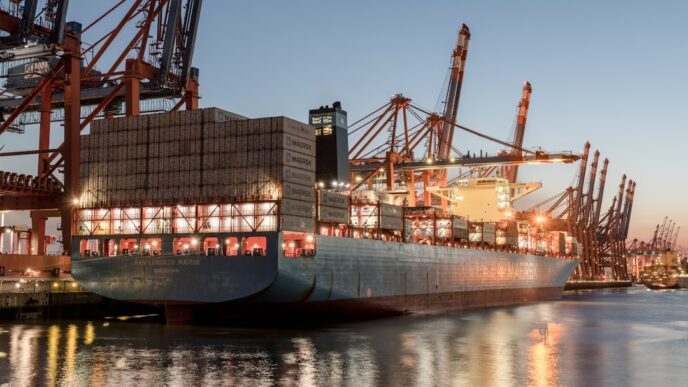Economic sanctions have become a prevalent tool in international relations, wielded by nations to exert pressure without resorting to military force. While the intention is often to influence political behavior or to signal disapproval of a country’s actions, the broader economic implications of sanctions can be profound—not only for the targeted nation but also for the global economy.
At their core, economic sanctions typically involve restrictions on trade, investment, and financial transactions. These measures can take many forms, including trade embargoes, asset freezes, and limitations on technological exchanges. The most notable examples include the sanctions imposed on Iran, North Korea, and Russia, which have drawn attention for their economic ripple effects.
One of the immediate impacts of sanctions is the disruption of trade flows. Targeted nations often find their exports plummeting, which can lead to severe economic contraction. For example, when the United States reimposed sanctions on Iran in 2018, it not only crippled Iran’s oil exports but also affected global oil prices and supply chains. The uncertainty surrounding sanctions can lead to volatility in global markets, as companies reassess their exposure to affected countries and alter their investment strategies accordingly.
Moreover, sanctions can create a paradoxical scenario where the intended economic isolation of a nation inadvertently strengthens its resolve. Countries facing sanctions often rally around their leadership and may become more nationalistic, increasing domestic support for the regime. This phenomenon can lead to a more entrenched political environment, further complicating international relations and prolonging conflicts.
The economic repercussions of sanctions extend beyond the targeted nations to affect global markets. For example, when sanctions are placed on a significant oil producer, such as in the case of Venezuela, global oil prices can spike due to reduced supply. This situation illustrates the interconnectedness of international trade; the decisions made by one nation can have a cascading effect on economies around the world. In this context, the economic costs are not solely borne by the sanctioned country but can impose burdens on global consumers and businesses, affecting inflation rates and economic growth in other nations.
Additionally, sanctions can lead to the emergence of parallel economic systems. Countries targeted by sanctions may seek new trading partners to circumvent restrictions, fostering relationships with nations that are willing to engage in trade despite the risks. This can create alternative trade routes and alliances, often shifting the balance of economic power in unexpected ways. For instance, as Western nations withdrew from trade with Iran, the latter turned increasingly towards China and Russia, forging stronger bilateral ties that could reshape future trade dynamics.
The humanitarian impacts of economic sanctions also warrant consideration. While sanctions aim to pressure governments, they often disproportionately affect the civilian population. Shortages of essential goods, including food and medicine, can lead to widespread suffering among ordinary citizens. This humanitarian cost raises ethical questions about the effectiveness and morality of sanctions as a policy tool.
In conclusion, while economic sanctions are designed to achieve specific geopolitical goals, their broader implications for international trade and economic stability are complex and multifaceted. The hidden costs of sanctions highlight the need for a more nuanced approach to foreign policy, one that considers not only the political objectives but also the economic realities and humanitarian consequences. As nations navigate an increasingly interconnected world, understanding the intricate web of global trade relations becomes ever more essential in assessing the true impact of economic sanctions.













